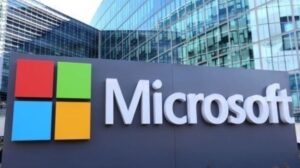Telecom
Qualcomm Celebrates Successful Completion of the Second Year of the Make in Africa Startup Mentorship Program
Qualcomm Incorporated has announced the successful completion of the second year of its Make in Africa Startup Mentorship Program, culminating in the Make in Africa Finale 2024.

This platform continues to showcase the energy and innovation emerging from the African technology scene, demonstrating Qualcomm’s commitment to supporting startups as part of the broader Qualcomm Africa Innovation Platform.
Now in its second year, this program has successfully guided early-stage technology startups by providing mentorship, business coaching, engineering consultation, and IP protection advice.
This year’s Make in Africa finalists, from six African nations, are tackling real-world challenges across healthcare, agriculture, cutting-edge AI and industrial sectors.
The 2024 cohort includes the following startups (listed in alphabetical order):
- Aurora Health Systems from Kenya provides AI-based cardiovascular healthcare tools
- CropScan from Kenya uses solar-powered smart farming IoT devices
- Cure Bionics from Tunisia makes smart 3D printed prosthetic devices
- DevisionX from Egypt provides AI-based low-code computer vision tools
- Kalio from Cameroon is building AI tools for Agricultural IoT
- Kitovu from Nigeria provides tools and software for smart agricultural warehouse management
- NextAI Studios from Kenya builds AI-based emotion detection into toys for children’s mental healthcare
- RIM Nextgen from Kenya, uses smart tools for monitoring propane consumption
- Sparcx from South Africa uses AI for enhancing radar signal processing
- ViZmerald from Tunisia, is working on AI-based textile industry inspection
Wireless Reach Social Impact Fund Winner
Aurora Health Systems from Kenya was announced the winner of the 2024 Wireless Reach Social Impact Fund. This fund, provided by Qualcomm through its Qualcomm® Wireless Reach™ Initiative, aims to support startups in scaling their societal and market impact.
Aurora Health Systems was selected for their innovative wireless, portable ECG device with LTE connectivity. This device assists patients with cardiovascular disease by enabling remote data transmission of ECG data to healthcare providers, even in rural areas.
They are the first in East Africa to train ECG AI models on locally sourced data, resulting in more accurate algorithms and improved AI-powered diagnostics. Additionally, all finalists will receive stipends to further fuel their growth and help protect their intellectual property.
Highlighting the L2Pro Africa IP E-Learning Platform
In an effort to harness Africa’s vast potential for innovation and creativity, the L2Pro Africa IP e-learning Platform provides further support to startups across Africa. This free online training program, developed in collaboration with Adams and Adams, Africa’s leading IP law firm, is designed to empower startups, SMEs, and researchers across the continent.
The platform provides essential knowledge and tools to protect and maximize innovations, addressing the pressing challenge of limited patent activity in Africa. By equipping innovators with the skills needed to safeguard and commercialize their inventions, L2Pro Africa aims to unlock new economic opportunities and foster a thriving ecosystem of innovation.
Launch of Qualcomm Make in Africa Startup Mentorship Program 2025
Building on the success of previous years, Qualcomm is excited to launch the Make in Africa 2025 program. Applications are now open. Details can be found here: https://www.qualcomm.com/company/locations/africa/qualcomm-make-in-africa
“The Make in Africa startups are disrupting traditional industries and tackling socio-economic challenges, crafting innovative solutions with global market reach by using AI, advanced connectivity, and IoT,” said Wassim Chourbaji, SVP & President, Qualcomm MEA & SVP, Government Affairs EMEA,.
“This startup mentorship program reflects Qualcomm’s commitment to support promising early-stage deep tech startups, empowering local talents, creating jobs and driving economic growth.”
Highlights: The Qualcomm Make in Africa 2024 program supported ten startups from six African nations, addressing challenges in healthcare, agriculture, AI, and industrial sectors.
- Nigerian startup, Kitovu, was among this year’s finalists. Founded by Nwachinemera Emeka, Kitovu is revolutionizing agriculture with its WareGuard smart warehouse management solution, designed to reduce post-harvest losses and enhance food security for millions of farmers.
- Aurora Health Systems of Kenya was announced as the winner of the 2024 Wireless Reach Social Impact Fund.
- Applications for Qualcomm Make in Africa 2025 are now open.
Telecom
Nigeria Has World’s Most Affordable Data Costs – GSMA
Nigeria has an average data cost of $0.38 per gigabyte, making her the most affordable countries globally and one of the cheapest in Africa for mobile data services.

United States averages $6 per gigabyte and South Africa with $1.77 per gigabyte rank the highest globally and in Africa respectively.
According to the GSMA, Nigerian data costs, as a percentage of Gross National Income (GNI) per capita, are among the lowest across Africa.
The reports by the body lends weight to telecom operators advocacy for tariff adjustments to address economic pressures threatening the sector’s sustainability.
The GSMA report, titled “The Role of Mobile Technology in Driving the Digital Economy in Nigeria,” highlighted Nigeria’s competitive data pricing, which is significantly lower than other African nations, such as Kenya ($0.59 per gigabyte), Ethiopia ($0.68 per gigabyte), and South Africa ($1.77 per gigabyte).
By contrast, the United States averages $6 per gigabyte, underscoring Nigeria’s advantage in offering cost-effective connectivity.
The cost of mobile data in Africa varies greatly by country and region.
Data costs can refer to the cost of mobile data or the cost of acquiring, maintaining, and using business data.
In 2023, the average cost of 1 GB of mobile data in Sub-Saharan Africa was $3.31, while in Northern Africa it was $0.86.
Telecommunications operators in Nigeria have been requesting some policy changes as well as tariff rebalancing to enable them deliver support to the Government’s digital economy objectives.
They have called for the simplification and improvement of the Right of Way (RoW) charging and administration process, harmonised across the country
According to them, all government authorities (at national and sub-national levels) should apply the national maximum RoW fee of N145 per/LSQM adopted by the National Economic Council (NEC) for the deployment of fibre across all states in Nigeria.
There should be a single point of contact in each state for the RoW application process while the duration for the approval process should be digitalised and limited to a maximum of one month.
Simplification and reduction of the tax burden on the mobile sector
On tariff, recall that the Association of Licensed Telecommunications Operators of Nigeria (ALTON) and the Association of Telecommunications Companies of Nigeria (ATCON) had urged the Nigerian Communications Commission (NCC) to consider reviewing tariffs upward to address rising operational costs.
Nodding in agreement, Bismarck Rewane, chief executive officer, Financial Derivatives, said the proposed tariff hike by telecommunications will help reduce inflation in the country.
He said it would help to reduce inflation because it increases productivity, stressing that the price of MTN shares went up by 10% to 220.
Rewane reiterated that investors had already factored that in, adding that they are expecting a lot of good goodies.
“But more important to think about is the fact that because of an increase in tariff and an increase in investment to make the industry sustainable, they’re going to see an increase in productivity, not directly but indirectly.
“Any increase in productivity and output is likely to allow inflation to moderate, which is the goal. So, we heard from the policymaker, Bosun Tijani, who was very clear that we want a sustainable sector. But we also heard from the regulator saying that we will hold these guys to quality of service.
“We also heard from the operators, MTN that they are all revving up. So in all, there are economic benefits because of increased output and productivity. Two, policymakers are aligned because they want this to lead to a moderation in inflation,” he added.
He further said that it was not a bad deal and re-echoed the minister’s comment that the tariff hike will not be 100 per cent.
“Will they get 100%? No, they will definitely not. We suspect that we are going to likely see something between 40 and 50% which is fair after so many years of static changes,” Rewane added.
Telecom
Bismarck, Economist Claims Planned Tariff Hike by Telcos Will Reduce Inflation
Bismarck Rewane, chief executive officer, Financial Derivatives, has said the proposed tariff hike by telecommunications will help reduce inflation in the country.

Rewane made this statement on Channels Television’s Business Morning on Thursday.
Recall that Association of Licensed Telecommunications Operators of Nigeria (ALTON) and the Association of Telecommunications Companies of Nigeria (ATCON) had urged the Nigerian Communications Commission (NCC) to consider reviewing tariffs upward to address rising operational costs.
On January 3, Karl Toriola, chief executive officer (CEO), MTN Nigeria, said telcos want a 100 percent tariff hike.
According to Rewane, who previously supported the plans for a tariff hike, the move will make the sector more sustainable.
He said it would help to reduce inflation because it increases productivity, stressing that the price of MTN shares went up by 10% to 220.
Rewane reiterated that investors had already factored that in, adding that they are expecting a lot of good goodies.
“But more important to think about is the fact that because of an increase in tariff and an increase in investment to make the industry sustainable, they’re going to see an increase in productivity, not directly but indirectly.
“Any increase in productivity and output is likely to allow inflation to moderate, which is the goal. So, we heard from the policymaker Bosun Tijani, who was very clear that we want a sustainable sector. But we also heard from the regulator saying that we will hold these guys to quality of service.
“We also heard from the operators, MTN that they are all revving up. So in all, there are economic benefits because of increased output and productivity. Two, policymakers are aligned because they want this to lead to a moderation in inflation,” he added.
He further said that it was not a bad deal and re-echoed the minister’s comment that the tariff hike will not be 100 per cent.
“Will they get 100%? No, they will definitely not. We suspect that we are going to likely see something between 40 and 50% which is fair after so many years of static changes,” Rewane added.
Telecom
Microsoft to Spend $80Bn on AI Data Centres
In a bid to build AI-enabled data centres, Brad Smith, vice chair and president, Microsoft has disclosed the company’s plan to spend approximately $80 billion in its current financial year (to end in June), with more than half of that investment designated for the US.

Smith in a blog post, explained the tech giant plans to use the data centres “to train AI models and deploy AI and cloud-based applications around the world.”
Smith welcomed U.S. President Donald Trump to his second term in office, he cautioned against “heavy-handed regulations” that could slow down the private sector.
“The most important US public-policy priority should be to ensure that the US private sector can continue to advance with the wind at its back,” Smith stated.
He further explained that the U.S. “needs a pragmatic export control policy that balances strong security protection for AI components in trusted data centers with the ability for U.S. companies to expand rapidly and provide a reliable source of supply to the many countries that are American allies and friends.”
Stating that the US is well-positioned to flourish in its development of AI due to solid technology development and an innovative private sector.
“If the Trump Administration can develop a strong national AI talent strategy and use AI to make the government more effective and efficient, it will put the country on a promising path.”
He stated the U.S. is in a strong position to “win the essential race with China by advancing international adoption of American AI.”
Smith further claimed U.S. “products are more trusted than their Chinese counterparts, and our private sector is unmatched in its ability to invest in infrastructure around the world.”

 E-Financial2 days ago
E-Financial2 days agoSEC to Strengthen Borrowing Framework for Governments, Corporates

 E-Business2 days ago
E-Business2 days agoKaspersky Reviews Main Business Headache Related to IT Security

 E-Business3 days ago
E-Business3 days agoFirm Explores 2025 Potential IT Outage and Supply Chain Risk Scenarios

 Telecom2 days ago
Telecom2 days agoBismarck, Economist Claims Planned Tariff Hike by Telcos Will Reduce Inflation

 E-Financial3 days ago
E-Financial3 days agoGTCO Completes First Phase of Capital Raise Initiative with N209bn

 General News21 hours ago
General News21 hours agoNigeria Recovers $52.88m in Assets Linked to Former Petroleum Minister Diezani Alison-Madueke

 Telecom3 days ago
Telecom3 days agoCall, Data Tariffs Will Increase – Nigerian Minister, Tijani Declares

 E-Business2 days ago
E-Business2 days agoFG to Add Iris Biometrics to Digital ID for more Inclusion















